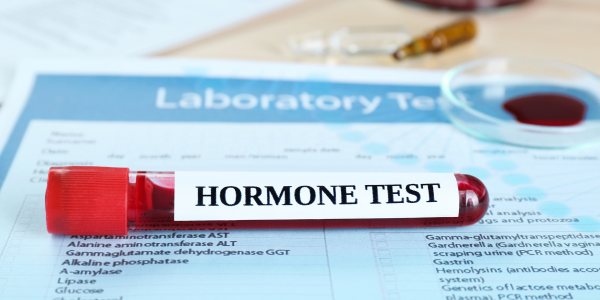

Autoimmune Diseases of the Joints – Learn the Most Common Symptoms and How Functional Medicine Can Help
In the morning, it’s impossible to get out of bed.
Not because you’re sleeping through your alarm – you’re wide awake. But your joints are stiff. You find it difficult to move and get going for the day.
Joint pain is a reality for many, and the resulting stiffness from lying or sitting still can be quite significant. And when it’s due to an autoimmune disease such as rheumatoid arthritis or polymyalgia rheumatica, it feels like your body is totally against you – it can be frustrating carrying out simple tasks, from brushing your hair to keeping social commitments. Joint pain can also be a symptom of other autoimmune diseases such as lupus and psoriasis for example.
Joint pain is not normal and shouldn’t be confused with simply “getting older”. If left unchecked, autoimmune diseases of the joints can have a huge impact on your health and lifestyle. But you can gain control by finding out more about these diseases and getting a diagnosis as soon as possible.
What Are the Symptoms of Rheumatoid Arthritis?
Where the symptoms of osteoarthritis are a result of the wear and tear of ageing joints, rheumatoid arthritis (RA) symptoms are more wide-ranging. Not only do you have to deal with joint pain and swelling due to inflammation of the joint lining, but the resulting inflammation can also cause complications elsewhere in your body.
Do you struggle with:
- Joint stiffness in the morning?
- Stiffness after a period of inactivity?
- Swollen joints that feel warm and tender to the touch?
- Loss of appetite?
- Fatigue?
- Fever?
If so, you may have rheumatoid arthritis.
Rheumatoid arthritis can sneak up on you, as it typically starts in your smaller joints. While it begins in the finger knuckles and toes, it can spread to your knees, wrists, ankles, elbows, hips, and shoulders.
Bear in mind that RA can progress into affecting your cardiovascular health, lung function, cognitive function, bone density and function, and can trigger Sjögren’s syndrome – an autoimmune disease that affects your ability to make tears and saliva.
Because RA is inflammatory in nature, your symptoms can ebb and flow – often a “flare” can strike without warning. Rheumatoid arthritis is not just a natural result of getting older – it’s a life-changing disease that can strike at any age.
How Is Rheumatoid Arthritis Diagnosed?
In the earliest stage of the disease, it can be difficult to spot as rheumatoid arthritis symptoms mirror other diseases. But your doctor can organize a number of tests to check for rheumatoid arthritis, including:
- Physical exam – your doctor can check the swelling of your joints, and whether there’s any redness or warmth. They can also check your muscle strength and reflexes.
- Blood tests – A blood test can check for raised levels of:
- Anti-CCP – An antibody that works as an early sign of RA. 98% of patients with rheumatoid arthritis test positive for this biomarker.
- Rheumatoid factor (RF) – Another antibody, but this test is less accurate than that for anti-CCP, as high levels of RF can also indicate other conditions such as gout, lupus, and mixed connective tissue disease. But if you have high levels of RF and anti-CCP in your bloodstream, it means you’re more likely to have rheumatoid arthritis.
- C-reactive protein (CRP) and/or Erythrocyte Sedimentation Rate (ESR)– Your liver creates CRP to respond to inflammation in the body. If levels are elevated, it indicates inflammation: the underlying mechanism of RA.
- Lyme serology – to rule out Lyme disease, which can also manifest as joint pain.
- Imaging tests – Regular x-rays, MRIs, and ultrasounds can help your doctor assess the progression of the disease.
A full workup is crucial, as your doctor needs to be able to discount other autoimmune diseases before deciding on your diagnosis and treatment.
What Are the Symptoms of Polymyalgia Rheumatica?
Polymyalgia rheumatica is another autoimmune disease that can be wrongly diagnosed as rheumatoid arthritis, as they share several symptoms. Polymyalgia rheumatica is mostly found in people over the age of 70, and like many autoimmune diseases is predominantly found in women. But when you have polymyalgia rheumatica, the pain is typically centered around your shoulders, neck and hips.
Polymyalgia rheumatica symptoms include:
- Aches or pain in your shoulders
- Aches or pain in your neck, upper arms, thighs, buttocks, or hips
- Stiffness in the morning that lasts longer than 45 minutes when you wake up
- Stiffness or pain in your wrists, elbows, or knees
- Limited range of motion in the afflicted areas
- Fatigue and a sense of “not feeling well”
- Fever
- Depression
- Loss of appetite and weight loss
The pain and stiffness from polymyalgia rheumatica can often interfere with your sleep and can affect your ability to do everyday activities such as getting dressed, bathing, or getting out of bed.
Polymyalgia rheumatica has links with another disease – giant cell arteritis, which causes inflammation in your arteries, usually in your temples. Giant cell arteritis causes neck and shoulder pain, headaches, jaw pain, and issues with your vision – and can lead to stroke. As giant cell arteritis and polymyalgia rheumatica resemble each other symptom-wise, and can often exist together, it’s crucial you see a doctor if you suspect you have polymyalgia rheumatica.
How Is Polymyalgia Rheumatica Diagnosed?
A large part of diagnosing polymyalgia rheumatica is discounting other diseases – such as rheumatoid arthritis, and fibromyalgia. To do so, your doctor needs to run a few different tests.
- Physical exam – your doctor looks at your joints and your full range of movement in the shoulders and other afflicted areas. A neurological exam is also key to rule out fibromyalgia.
- Blood tests – A blood test can check for raised levels of:
- Anti-CCP – Normal levels should rule out RA.
- Rheumatoid factor (RF) – Again, normal levels rule out RA.
- C-reactive protein (CRP) – High levels of CRP indicate inflammation in the body.
- Erythrocyte sedimentation rate (ESR) – This test looks for high levels of immunoglobulins in the blood, indicating inflammation.
If your ESR levels are normal but your CRP levels are raised, this may indicate a diagnosis of polymyalgia rheumatica. If both are raised, it indicates the disease is present. Blood tests can also rule out a blood infection, impaired organ function, or thyroid issues.
- Imaging tests – MRI and ultrasound can help your doctor distinguish polymyalgia rheumatica from other joint disorders.
Your doctor can also check for the presence of giant cell arteritis, which can resemble polymyalgia rheumatica, but result in serious complications.
How Can Functional Medicine Help My Rheumatoid Arthritis or Polymyalgia Rheumatica?
Functional medicine is a way of practicing medicine that centers on what your body needs and recognizes that in your body everything is connected – digestive health, immune system and so on. Your doctor works closely with you over several visits to improve your health through an individualized treatment plan. We focus on treating the underlying cause of your illness. In the case of autoimmune joint disease, a functional medicine doctor would focus more on treating the underlying inflammation than on masking the pain you’re in with painkillers.
To tackle the root cause of inflammation, at Arizona Wellness Medicine we focus on your:
- Nutrition and diet – The food you eat should give you the building blocks to heal your body. We understand that diets are not a one-size-fits-all deal, and we work with you to personalize an eating and supplement plan that’s ideal for you.
- Digestive health – Sometimes you may be eating all the right things but your gut is ill-equipped to digest and absorb the nutrients it desperately needs. We can run tests and find a way to heal your gut to improve your overall health. After all, 80% of your immune system is located in the gut.
- Sleep – Regular quality sleep does more than just refresh you – it can help reduce brain fog, inflammation, and aid your recovery. Not getting enough good quality sleep is a huge stress on your body.
- Exercise and Movement – Though you may feel like exercise is an impossibility with joint pain, we can show you simple stretches and gentle exercises that can help with inflammation, stress, and low mood.
- Stress management – Learning to handle stress can aid your sleep, digestion – and even reduce your inflammation levels. High stress can impair your immune system and make you more susceptible to infections and worsening autoimmune disease.
- Toxin burden – Modern life means you are exposed to more toxins than ever, through your environment, and even your food. We work on reducing your toxic burden that may be contributing to inflammation in your body.
We can help you in tackling the underlying causes of rheumatoid arthritis. If you’re interested in checking out functional medicine in the Phoenix, Scottsdale, Paradise Valley, Arizona area, call to book an appointment at 602 892-4727 or fill out our contact form. If you’re not local to us, why not try 7 Weeks to Your Healthiest Self – our masterclass that provides you with the benefits of functional medicine – from the comfort and privacy of your own home.
Share:
Social Media
Most Popular Posts
Subscribe To Our Newsletter
Related Posts

Understanding the Essential Labs for Women on Hormone Replacement Therapy (HRT)
So what are the minimum labs we’re looking at when we do hormone replacement therapy? We obviously want to look at an estrogen level, so

How to figure out the right amount of HRT in women
What about checking lab values when you’re on hormone replacement therapy? I do find it to be helpful, but we also want to consider symptoms.

Did you know there’s a difference between food allergies, sensitivities, and intolerances?
Did you know that there’s a difference between food allergies, food sensitivities and food intolerances? Food allergies, the reactions tend to happen pretty immediately and

Food Intolerances: Symptoms, Causes, and How They Differ From Food Allergies and Sensitivities
Eating a wide variety of whole foods is a key way to ensure a nutrient-rich diet full of vitamins and minerals. But what happens when
